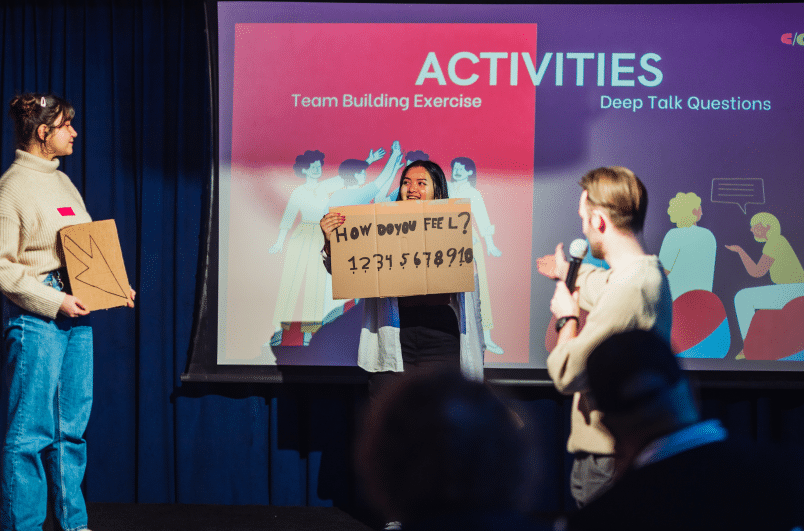Dancing, deliberating, dreaming and doing – enroute to a healthier music industry
International Music Industry Lab bridges the gap between theory and practice
The International Music Industry Lab of Inholland University of Applied Sciences is committed to realizing a ‘healthier’ music industry. To this end, the Lab is working together with the music industry on the challenges it currently faces. Presentations pertaining to such challenges worked on in the IMI Lab during the past semester were given during a recent event themed on Building healthier music ecosystems. On 16 January the Lab threw open its doors to enable plenty of dancing, deliberation, dreaming, and, above all, doing. And all this in conjunction with international partners and stakeholders from the Dutch music industry.
Making the music industry healthier means working on a music ecosystem that is sustainable, inclusive, resilient, versatile, and innovative, insists Koos Zwaan – associate lecturer and ‘lab lead’. This encompasses everything from fair payment and a safe working environment, to the influence of innovations, such as blockchain and artificial intelligence, for example. These are significant and often abstract themes, which in the Lab are reduced to tangible and manageable issues. ‘In that context, we think big and act small, which we feel can only be done properly if done together with partners from all across the industry. It’s for that reason that students in the Lab are already fully involved in a practical sense. And we also want to emphasize that we see them as equal partners. Not just students, but young professionals too.’
The design process is key
The IMI Lab is populated by these young professionals, who are following Inholland programs that touch on the music industry, continues Zwaan. These are mainly from the Creative Business program, but also from Business Innovation, Tourism Management, and Leisure & Events Management, for example. During the recent event, they presented the ‘results’ of their lab track at IMI around four themes. ‘The word ‘results’ is between quotation marks because, in a lab like ours, the design process is actually more important than the results. Incidentally, what these students presented is not set in stone; it’s merely a departure point or train of thought that has to be further developed in the real world. For this reason, their presentations were followed by workshops to stimulate collective thinking, dialogue, and the exchange of ideas about the various topics.’
All-in-all, it made for an enjoyable afternoon in which dialogue was stimulated and some critical issues were probed. The central discussion, for example, was about mental health in the music industry, a project that has been carried out in collaboration with the C/O Pop convention in Cologne, Germany. It led to some frank anecdotes about mental resilience. The project team, which together with Prospect Eleven explored how the musical culture in Amsterdam Zuidoost (Southeast) can be stimulated, explained to the audience how a new network has been set up in this district of the city. The critical questions and feedback that ensued provided new insights for the team. Ralph Christoph of C/O Pop believes that the IMI Lab meets a clear need in the music world. ‘It functions as a laboratory, a place to experiment,’ he stresses, ‘by filling the gap between the theoretical world and the day-to-day realities of our business. It represents a fantastic opportunity for students to develop in a setting that so closely emulates reality.’
